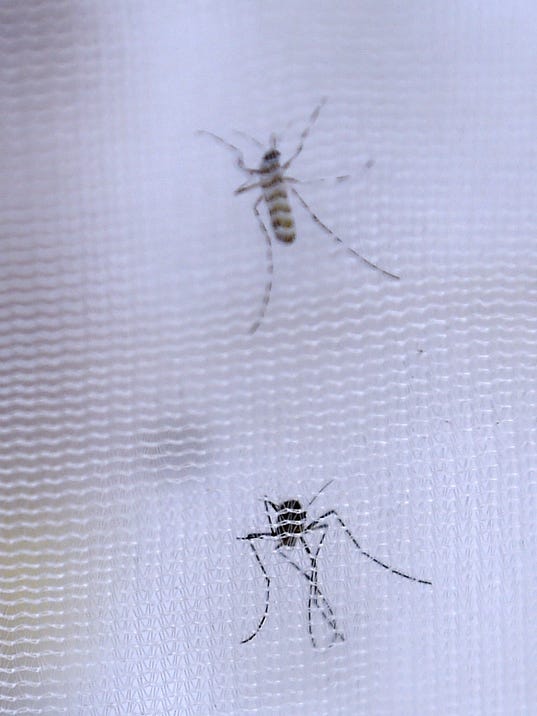
(Photo: Larry McCormack / The Tennessean and Pulitzer Center on Crisis Reporting)
GRESSIER, Haiti — Dr. Bernard Okech, a medical entomology associate professor at the University of Florida, is on the front lines of researching mosquito-borne diseases in Haiti.
For the past six years while running a lab out of Gressier, he has been trapping mosquitoes and tracking patients who show symptoms of diseases, including chikungunya and malaria. When a school clinic identifies a child with symptoms, Okech sends a team to the child’s house to collect mosquitoes and study them in U.S. labs.

Want to help Haiti? Act like a tourist
“We have seen a lot of imported cases of dengue and chikungunya and even Zika into the U.S.,” Okech said. “By knowing more information about dengue, about Zika in Haiti and other Caribbean countries, we can be better prepared to control the infection if it finds its way to the United States.”
Zika, linked to the birth defect microcephaly, has emerged in countries throughout the Caribbean and South America, raising concerns for pregnant women in those areas. As many U.S. travelers are expected to attend the Olympics in August in Brazil and visit other nearby countries, health officials are seeking to prepare preventative measures and cures.
Okech’s lab in Gressier was responsible for the recent findings that Zika was in Haiti in December 2014, before being discovered in Brazil. The report, released in April, said three Haitian schoolchildren were carrying the virus at the time.
Dr. David Vanderpool, who lived in Brentwood before running a prenatal care clinic in Haiti, said his facility has seen several cases of what appears to be Zika. He suspects microcephaly in one infant out of as many as 400.
“We want to isolate the virus,” Okech said. “Based on findings, we can tell which mosquito species are the most involved in transmitting Zika.”
That information can help scientists target breeding grounds, based on the species’ habits, he said.
Beyond the health concerns, especially for pregnant women, the Zika virus is expected to take a heavy toll on tourism in popular travel destinations in South America and the Caribbean. But as of March, the virus had not had a meaningful impact on travel.
Part of the reason for that is Haiti has other tourism challenges that rank higher — such as political instability — and a lack of awareness about its travel destinations.
While some international travelers had canceled in response to the protests surrounding the presidential elections in February, Marriott Port-au-Prince Marketing Manager Stephanie Gibson said she has not fielded calls concerning Zika.
“Luckily, it has not started to affect us yet,” she said.
Tourism Ministry officials reported similar findings, as did those who host mission travelers. While Zika is a global and national health concern, as well as a tourism concern, Samuel Dameus, a spokesman for the tourism ministry, said he has not observed a negative impact.
Richard Morse, who runs the historic Hotel Oloffson in Port-au-Prince, said the travelers who are attracted to Haiti are not likely to react to the headlines concerning Zika.
“People who come to Haiti come to Haiti for a reason; they don’t just come here because they are choosing between here and Puerto Rico and Hawaii or something,” said Morse. “Haiti does fine, but not with your standard tourists. Haiti’s special. Haiti’s different.”
The reporting for this story was funded by a grant from the Pulitzer Center on Crisis Reporting.
Reach Jamie McGee at 615-259-8071 and on Twitter @JamieMcGee_.